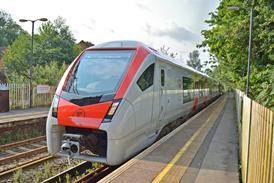ON SEPTEMBER 19 Metronet was named preferred bidder for the Sub-Surface Lines Infraco contract, indicating that progress, albeit slow, continues to be made with the London Underground Public-Private Partnership project. The SSL contract covers the Circle, District, Hammersmith & City, Metropolitan and East London lines.
LU Chairman Derek Smith said that ’with the selection of the third and final consortium for the SSL, we are making real progress’, but Commissioner of Transport for London Bob Kiley called the announcement ’rushed, premature and taken without meaningful consultation with Transport for London’.
On September 4 Smith had announced that ’detailed negotiations’ had resumed with Metronet and Tube Lines Group, the shortlisted bidders for the Bakerloo-Central-Victoria and Jubilee-Northern-Piccadilly contracts. The move followed agreement on changes to the contractual arrangements relating to the control and monitoring powers that Transport for London will have over bidders’ investment plans, and Secretary of State for Transport Stephen Byers said that these ’demonstrate in the clearest terms that safety will not be compromised’.
Specifically, the proposed changes address concerns expressed by Kiley over the accountability of the Infracos, with LU being granted authority to approve workplans, to set ’key milestones’, and to direct the Infracos ’to take action on health and safety grounds’. LU will also have ’open-book access’ to Infraco information to ensure that maintenance meets specified standards, and will appoint a ’Partnership Director’ to each Infraco board.
On August 24 the Court of Appeal had lifted an injunction granted to London Transport preventing publication of a report by Deloitte & Touche about the value for money of the PPP, agreeing that an unedited version could be sent to the National Audit Office. Although the report was qualified by its authors as not being comprehensive ’as we have not become aware of all the facts or information that you may regard as relevant’, they said that they could find ’no evidence’ that there was a valid basis for establishing that the PPP will achieve value for money ’using commonly-accepted techniques’. The report found that the bids, with one exception, were more expensive than the ’Public Sector Comparator’, which itself had been subject to ’highly material adjustments, described by the authors as ’judgemental, volatile or statistically simplistic’. But Smith described the report as ’rushed, wrong and riddled with errors’.




















